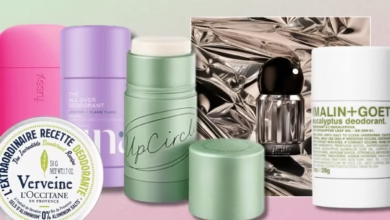Private Label THC Mints vs. CBD Mints: Which is Right for Your Brand?

In today’s expanding cannabis and hemp market, businesses are constantly seeking innovative products to meet growing consumer demands. Among the most popular categories are mints, a discreet, convenient, and flavorful way to enjoy cannabinoids. As entrepreneurs and retailers explore opportunities in this space, many face an important decision: should they launch Private Label THC Mints or CBD mints under their brand?
Understanding the differences between these two products is essential for making an informed choice that aligns with your audience, legal restrictions, and long-term business goals. Let’s break down the key factors to consider.
The Appeal of Cannabinoid Mints
Mints are not just breath fresheners anymore; they’ve evolved into functional wellness and lifestyle products. Whether infused with CBD or THC, these small but powerful products offer consumers a discreet and precise method of enjoying cannabinoids. They’re portable, easy to dose, and avoid the stigma associated with smoking or vaping.
For brands, cannabinoid mints represent a low-barrier entry into the booming cannabis and hemp sectors. By choosing private labeling, businesses can customize formulations, flavors, and packaging without the heavy upfront costs of developing manufacturing infrastructure.
What Are Private Label THC Mints?
Private Label THC Mints are cannabis edibles infused with tetrahydrocannabinol (THC), the psychoactive compound in marijuana. They provide users with the “high” effect associated with THC, making them especially popular in recreational cannabis markets.
Brands that opt for these mints can offer precise microdoses, often ranging from 2.5 mg to 10 mg per mint, giving consumers control over their experience. They’re particularly appealing to customers who want a discreet and convenient way to enjoy cannabis without smoking.
However, THC products come with stricter regulations. Selling Private Label THC Mints is only possible in states or countries where recreational cannabis is legal. Additionally, businesses must navigate licensing, compliance, and packaging requirements that are often more rigorous than those for hemp-derived CBD products.
The Case for CBD Mints
CBD mints, on the other hand, contain cannabidiol (CBD), a non-intoxicating compound derived from hemp. They deliver calming, wellness-focused benefits without the psychoactive effects of THC. For this reason, they attract a broader audience—including people interested in relaxation, stress relief, or wellness support.
Unlike THC products, CBD mints can generally be sold nationwide in the U.S. (and in many other regions worldwide) as long as they contain less than 0.3% THC. This makes them an attractive option for brands that want to reach mainstream markets without being limited by cannabis-specific regulations.
CBD mints are ideal for companies focused on natural wellness, lifestyle branding, or mass-market retail distribution. They’re also an excellent gateway product for consumers who are new to cannabinoids and hesitant to try THC.
Factors to Consider When Choosing Between THC and CBD Mints
- Legal Compliance
- THC products are only viable in legalized markets and require strict adherence to cannabis laws.
- CBD mints are accessible in a wider range of regions, making them easier to distribute.
- THC products are only viable in legalized markets and require strict adherence to cannabis laws.
- Target Audience
- If your brand caters to recreational cannabis users, Private Label THC Mints are a strong choice.
- If your audience is more wellness-oriented or new to cannabinoids, CBD mints may resonate better.
- If your brand caters to recreational cannabis users, Private Label THC Mints are a strong choice.
- Brand Identity
- THC aligns with brands targeting adult-use, lifestyle, or “recreational escape” positioning.
- CBD aligns with wellness, health-conscious, and stress-relief branding.
- THC aligns with brands targeting adult-use, lifestyle, or “recreational escape” positioning.
- Market Competition
- THC mint markets are growing but often localized due to regulations.
- CBD mints face broader competition but offer more distribution flexibility.
- THC mint markets are growing but often localized due to regulations.
- Profit Potential
- THC products often command higher margins in legal markets.
- CBD products benefit from larger scale and less restrictive logistics.
- THC products often command higher margins in legal markets.
Why Some Brands Choose Both
Forward-thinking businesses don’t necessarily limit themselves to one option. Many brands create dual product lines: Private Label THC Mints for recreational markets and CBD mints for wellness-focused audiences. This strategy maximizes reach, caters to different consumer needs, and positions the brand as a versatile player in the cannabinoid industry.
For example, a company could launch THC mints in legalized states while simultaneously distributing CBD mints nationwide. This dual approach allows them to establish a consistent brand identity while diversifying revenue streams.
Conclusion
The choice between Private Label THC Mints and CBD mints ultimately depends on your brand vision, market goals, and regulatory environment. THC mints offer exciting opportunities for differentiation and high margins but come with legal complexities. CBD mints provide broader accessibility and appeal to wellness-focused consumers but operate in a highly competitive space.
By carefully evaluating your audience, compliance requirements, and long-term objectives, you can make the right choice—or even combine both to create a comprehensive cannabinoid product portfolio. Whether you choose CBD or THC, mints offer an innovative, discreet, and profitable way to carve your place in the growing cannabis and hemp industries.



